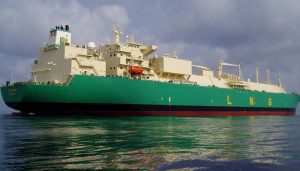By Innocent Obasi
Nigeria’s gas export declined to one million tonnes in January 2023, indicating 35 per cent depreciation year on year, and lower than export volumes by Algeria, according to Refinitiv Eikon, a leading provider of real-time data.
The data provider in its analysis of flows showed Nigeria’s liquefied natural gas (LNG) exports dropped last month as Algeria surpassed Nigeria to emerge Africa’s largest producer of LNG for the first time ever on a monthly basis despite record spot prices for the commodity.
“In January, Nigeria’s LNG exports slumped to about one million tonnes, representing a 35 per cent year-on-year drop versus Algeria, which exported around 1.1 million tonnes,” Refinitiv Eikon said.
At name-plate capacity, findings showed Nigeria LNG’s (NLNG) project can export up to roughly 1.8 million tonnes per month but production and export has been below capacity amid disruptions in output.

Olumide Ajayi, a senior LNG analyst at London Stock Exchange Group,explained that much of the feed gas supplied to Nigeria’s NLNG project at Bonny Island is derived from associated gas, hence the drop in the country’s oil production. This,he added, is on the back of upstream issues and pipeline vandalisation which has led to a sizeable decline in feed gas supply to the facility.
“Worth noting that two years ago, LNG spot prices fell to less than $2/mmBtu; so this opportunity to take advantage of high spot LNG prices won’t always be there,” Ajayi added.
On top of that, gas infrastructure has also been seen to be inadequate, although the public and private sectors have indicated commitment towards expanding it.
On its part, NNPC disclosed it is building a 614 km gas pipeline linking gas fields in the Niger Delta to industrial and manufacturing centres in its Northern states. Also, the private sector is investing into additional piped natural gas (PNG) networks and compressed natural gas (CNG) facilities.







